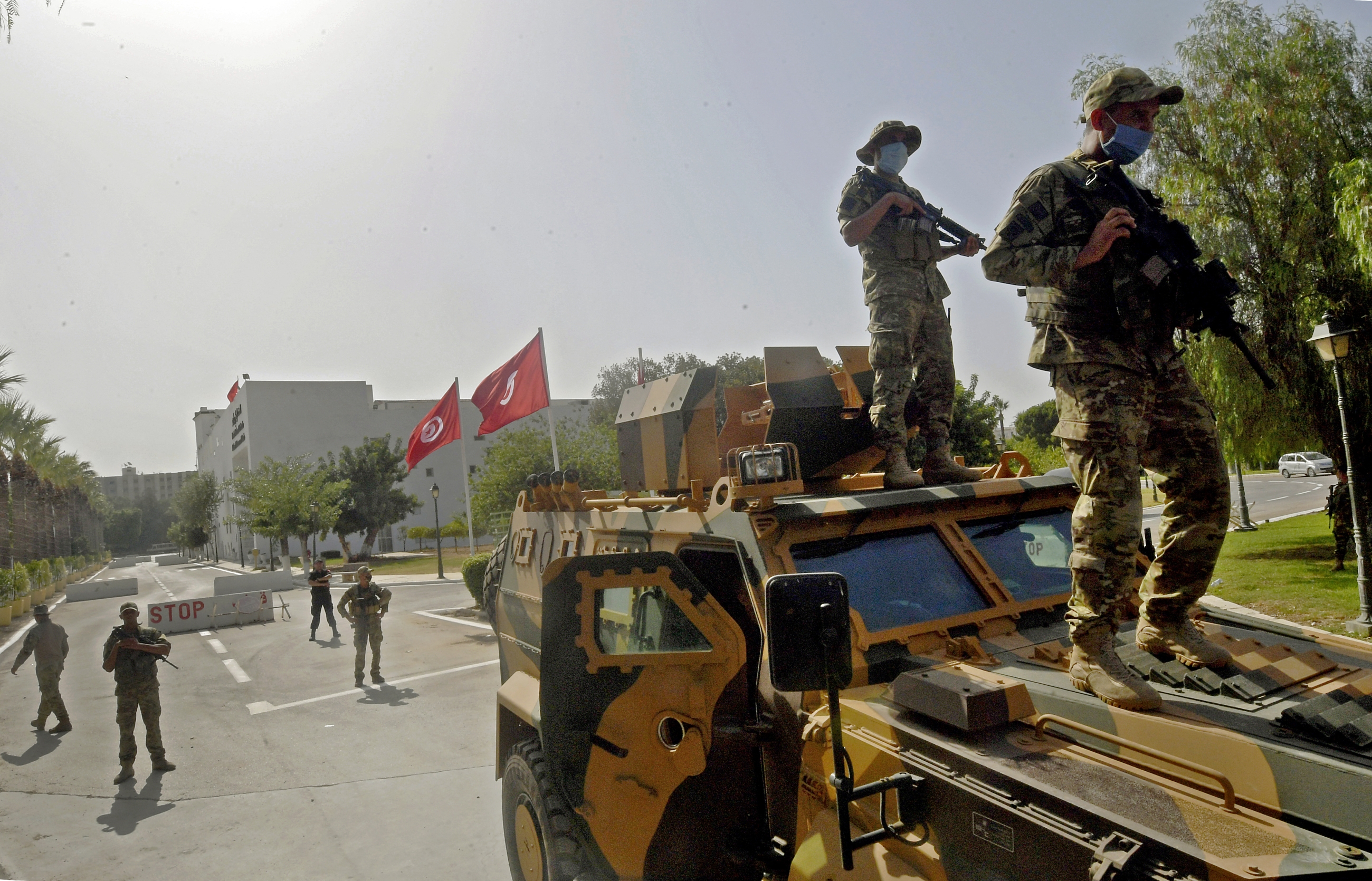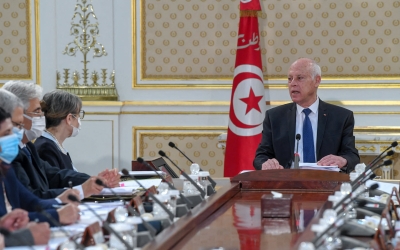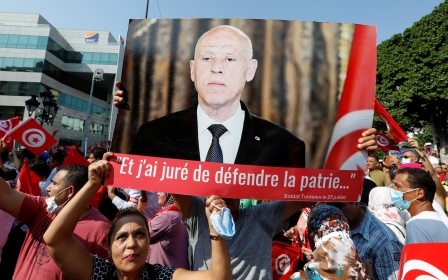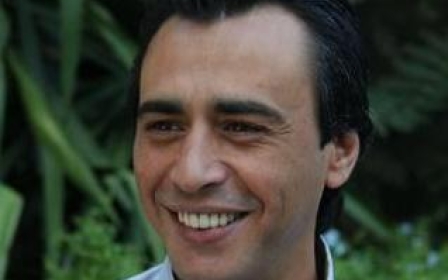Tunisia: EU lawmakers call for resumption of parliament following Saied's power grab

The European Parliament on Thursday said it is deeply concerned about the growing concentration of power in the hands of Tunisian President Kais Saied, three months after he took on wide executive and judicial powers.
EU lawmakers said Tunisian authorities must provide a clear roadmap out of the country’s political crisis and “resume an inclusive national dialogue that must also include civil society”.
Tunisia descended into a political crisis in late July when Saied, a former constitutional law professor, suspended the country's parliament, sacked the prime minister and granted himself prosecutorial powers, in effect taking full control of the state and sidelining all opposition.
The resolution passed by the European Parliament called for a return to Tunisia’s “fully fledged democracy” and the “resumption of parliamentary activity as soon as possible”.
EU lawmakers “stress[ed] that the constitution and the legislative framework must be preserved and that the country needs a well-functioning and legitimate Parliament”, according to a statement issued after Thursday’s vote.
New MEE newsletter: Jerusalem Dispatch
Sign up to get the latest insights and analysis on Israel-Palestine, alongside Turkey Unpacked and other MEE newsletters
Consolidation of power
Saied has defended his measures, claiming they were necessary to fight skyrocketing unemployment, rampant corruption, and the coronavirus pandemic. But his political opponents and rights groups have described the move as a blatant power grab.
The European body warned that “powers are too greatly concentrated in the hands of the president”, and raised alarm over continued arbitrary travel bans, state surveillance and house arrests.
It also said the government’s use of military courts to try civilians was "highly problematic” and emphasised the need for an independent judiciary.
Saied initially said his moves would be temporary to address the country’s myriad crises, but analysts have increasingly warned that the Tunisian leader appears set on consolidating power.
Will Todman, a fellow in the Middle East programme at the Center for Strategic and International Studies, told Middle East Eye that “Saied is feeling more and more confident with the passing of time.”
The rebuke issued by the European Parliament comes a week after US lawmakers from across the political spectrum slammed Saied at a congressional hearing in Washington.
Republican congressman Brian Mast referred to Saied as "a dictator”, while Democratic Congressman Ted Deutch warned that hopes for the country’s future, ”ha[d] reverted to either continued authoritarianism or civil war”.
US lawmakers have debated cutting economic aid to pressure Saied, but have questioned whether Washington has the ability to influence the Tunisian leader’s actions.
Some in Congress have said the US needs to do a better job of coordinating its Tunisia policy with the EU, which accounts for roughly 70 percent of the North African country’s export market.
In their resolution on Thursday, parliamentarians called on the EU to continue programmes that directly support the Tunisian people and to increase some forms of assistance like the EU’s Covid-19 vaccine initiatives.
Middle East Eye delivers independent and unrivalled coverage and analysis of the Middle East, North Africa and beyond. To learn more about republishing this content and the associated fees, please fill out this form. More about MEE can be found here.





